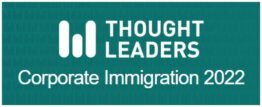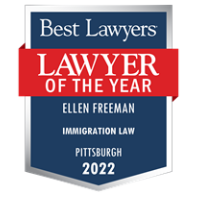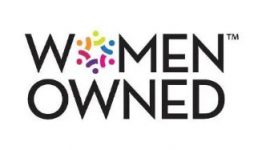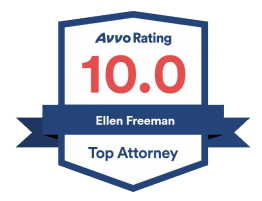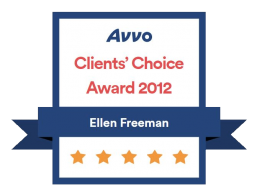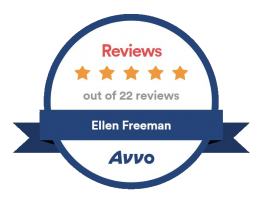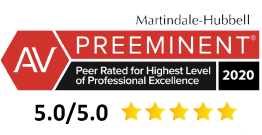Ellen Freeman is a partner in the Pittsburgh office of K&L Gates LLP. She has practiced for over 16 years in the various aspects of employment-based immigration and supports clients throughout the many steps of operating a business in the U.S., including the formation of a corporate entity, choice of immigration strategy, applications for temporary visas and establishing permanent residences.
Freedman serves on the American Immigration Lawyers Association’s Global Migration Steering Committee and has been appointed by the mayor of Pittsburgh to the Welcoming Pittsburgh Advisory Council. An active AILA member, Ellen frequently speaks at national and international conferences and currently serves on the AILA’s Business Immigration Committee and board of governors as the Pittsburgh chapter chairwoman.
Freeman attended law school at the University of Pittsburgh and holds masters degrees in Russian language and literature from Odessa National University and in public and international affairs with a concentration in international corporate environments from the University of Pittsburgh.
Q: What is the most challenging case you have worked on and what made it challenging?
A: One of my very first cases while still a third-year student in law school, and then as a first-year associate, was on behalf of a young man who was the same age as me and from the same city — Odessa, Ukraine. Prior to meeting him, the young man had unsuccessfully tried to pursue an asylum application based on national origin discrimination. It was my job to help him figure out and pursue another strategy to remain in the U.S. He was openly gay but, at that time, there were no immigration benefits available for someone like him. I knew that he could not survive in Ukraine and be secure about his life. Moreover, his parents and siblings were residing in the U.S. and there was no one left in Ukraine. It became my mission to help him through a work visa petition and legal permanent residence process. While he was stuck in Ukraine for a few months awaiting a visa, I even asked my relatives to lend him money. Since then, working for members of the lesbian, gay, bisexual and transgender community from the former Soviet Union has become a personal goal. While many cases are challenging, it is a human story that becomes very personal.
Q: What aspects of your practice area are in need of reform and why?
A: It is a cliche that our immigration system is outdated, broken and does not meet today’s needs. I often start an introduction by telling a young audience that they may disagree with the personal views of a much older person, like someone in their late 60s or 70s. The same is, of course, true of our immigration laws, which date back to 1952. While a few aspects and applications have been tweaked over the years, the main aspects are decades old. Instead of purposely selecting the most needed individuals to benefit our country, we still have numerous random lottery systems, whether for green cards or the most coveted H-1B work visa numbers.
Our current system allocates the vast majority of the green card numbers to family members of U.S. citizens and green card holders without any regard to their qualifications and usefulness. The most needed professionals are limited annually to only 140,000. Finding the available and suitable work visa category for both short-term and long-term purposes presents a challenge in most instances. It is hard to find an area of immigration law that meets today’s demands. The system is in need of an overhaul and Congress’ continued inability to tackle the issue puts our country at a great competitive disadvantage.
Q: What is an important issue relevant to your practice area and why?
A: Technology is definitely an area that will increasingly improve immigration law practice. In a fast-paced work environment where clients demand instant responses and actions, having a robust information technology system that can aid professionals in expediting service is very important. It is hard to believe, but there is no leader in the market that addresses immigration attorneys’ needs for consistent, efficient service with reliable tracking methodologies. Each of the few service providers has made some advances. It is especially apparent when we need to add global immigration practice capabilities and be able to provide answers regarding outbound visas or travel tracking. In addition, cybersecurity threats make many law practices hesitant to store and transfer large amounts of clients’ personal data. Developing and implementing the most advanced and secure database systems will have a great impact on the players in the immigration law field. Those who wait and rely on outdated programs will lag behind because of the inability to deliver reliable, client-friendly and cost-effective solutions.
Q: Outside your firm, name an attorney in your field who has impressed you and explain why.
A: Immigration attorneys are the most friendly and inclusive bunch. Attorneys do not choose to practice immigration law for its financial rewards or wide appeal. Immigration lawyers are concerned with repairing the world, making it a better and more fair place for all. The AILA, its employees and members, became my closest friends, advisers, mentors and cheerleaders. We are not very competitive with each other and are very proud of our collegial spirit. There have been many AILA members who have mentored and supported me over the past 10 years.
Eleanor Pelta, the head of the immigration practice at Morgan, Lewis & Bockius LLP, has been my role model. A working mother who not only maintains a growing national and international immigration law practice, she also gives an enormous amount of time and effort to the AILA and its members. Despite the hectic schedule and commitments, she makes herself available to junior attorneys. A devoted mother, sister, daughter and wife, Eleanor is also one of the most intellectual people in the profession. She is even a gourmet chef and, often, is the first one to poke fun at herself. Watching her success and accomplishments makes me proud of our profession.
Q: What is a mistake you made early in your career and what did you learn from it?
A: I wish I had more confidence in my abilities. I wish I took charge and started mapping my career earlier. Female attorneys tend to be very deferential and get comfortable in their professional environment. It is my view that we should challenge ourselves more and have more confidence to reach for the next level.

